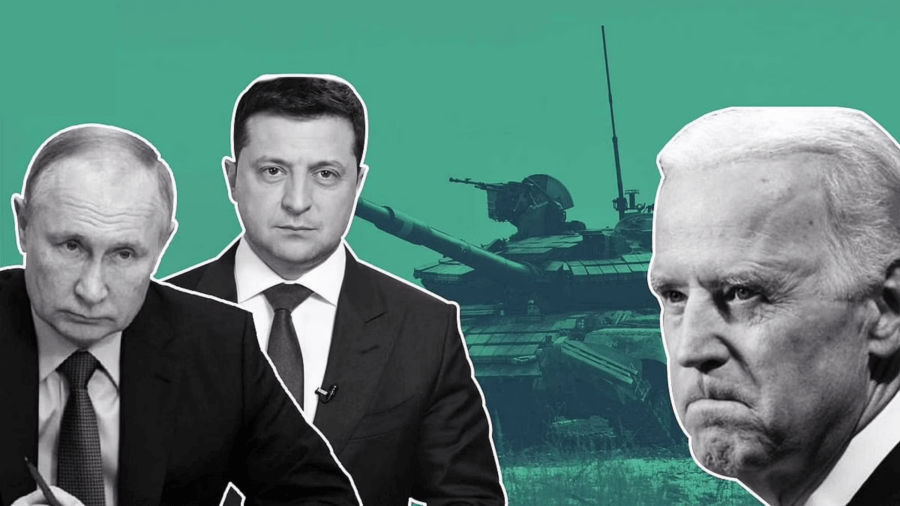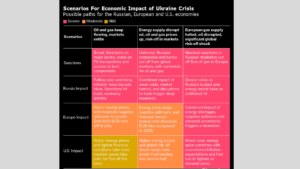Russia’s invasion of Ukraine might have global and domestic economic consequences, heightening uncertainty, rattling commodities markets, and potentially driving up inflation as global gas and food prices rise.
Russia is a big producer of oil and natural gas, and prices for both have risen sharply in recent weeks as a result of the geopolitical crisis. It is also the largest exporter of wheat in the world and a significant food provider to Europe.
Although the United States imports relatively little directly from Russia, a commodities shortage caused by a conflict could have knock-on effects that raise raw material and finished goods prices, at least temporarily, at a time when much of the world, including the United States, is experiencing rapid inflation.
Consumers in the United States may be alarmed by global upheaval, forcing them to cut back on spending and other economic activities. If the downturn worsens, the Federal Reserve, which plans to hike interest rates in March, may find it more difficult to decide how fast and aggressively to raise borrowing prices. Geopolitical threats, central bankers acknowledged in minutes from their most recent meeting, “might trigger increases in global energy prices or worsen global supply shortages,” but they also posed a danger to the growth forecast.
The extent of the potential economic consequences is unknown, but a foreign conflict might further postpone a return to normalcy following two years of economic turmoil caused by the coronavirus outbreak. Consumers in the United States are already dealing with rapidly rising costs, firms are attempting to negotiate tangled supply chains, and people are expressing pessimism about their financial prospects despite solid economic development.
“Economic uncertainty will rise, which will be detrimental to individuals and businesses,” said Maurice Obstfeld, a senior scholar at the Peterson Institute for International Economics. He predicted that the impact will…








